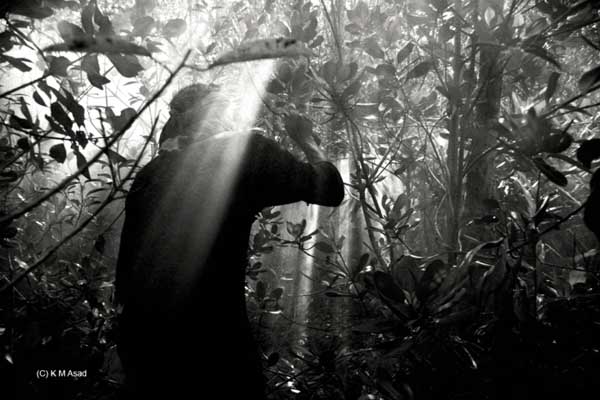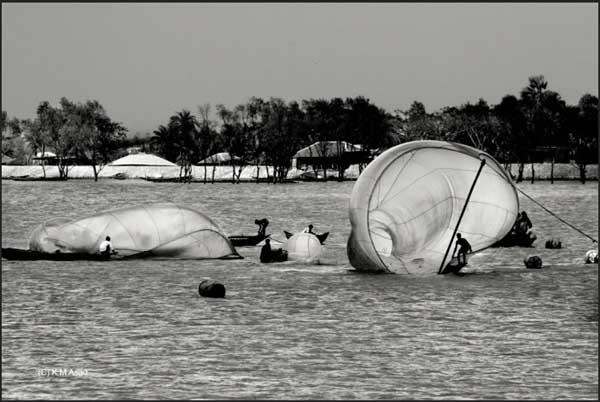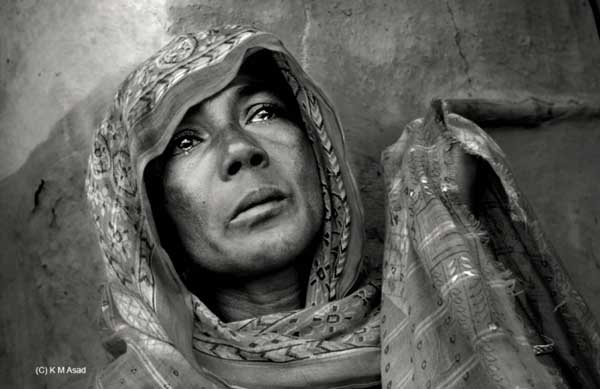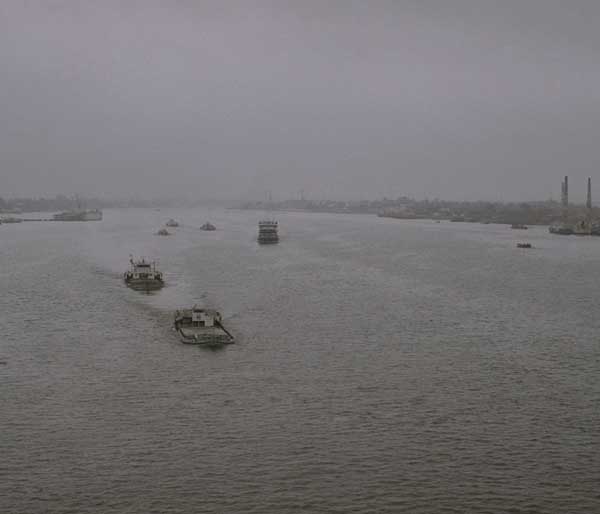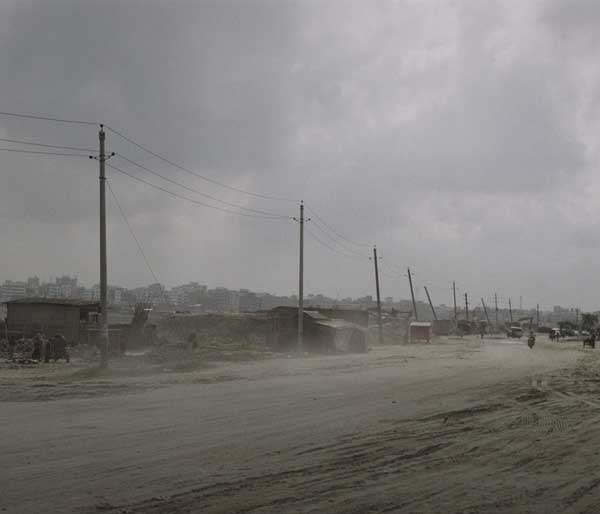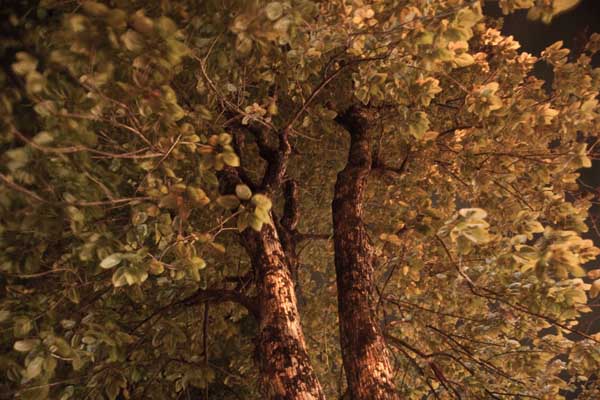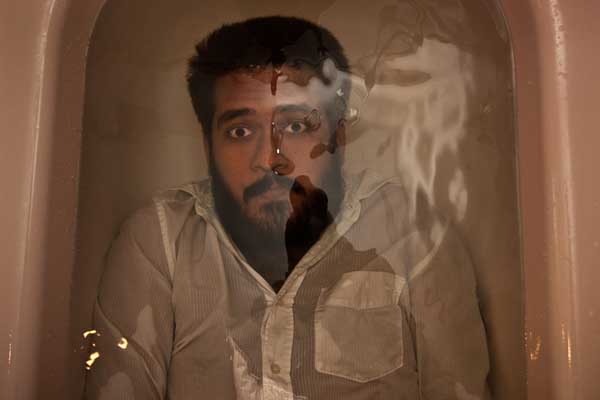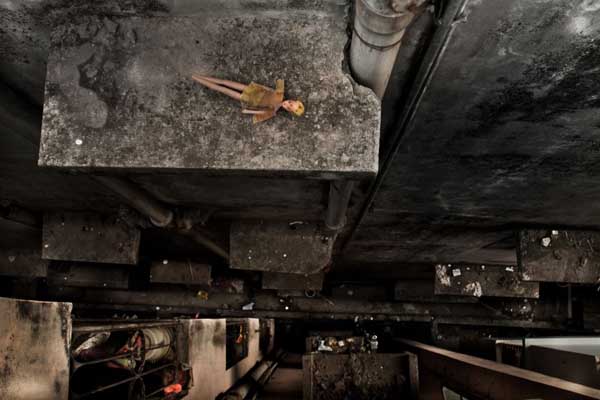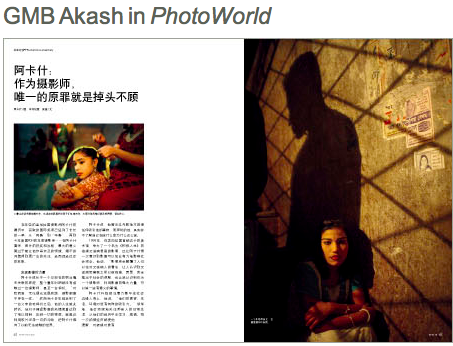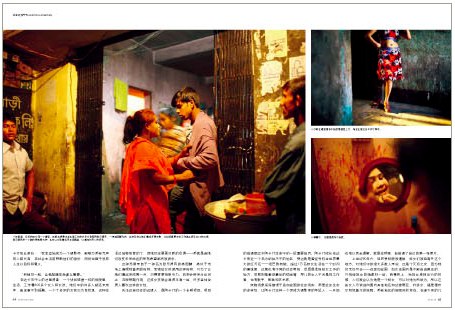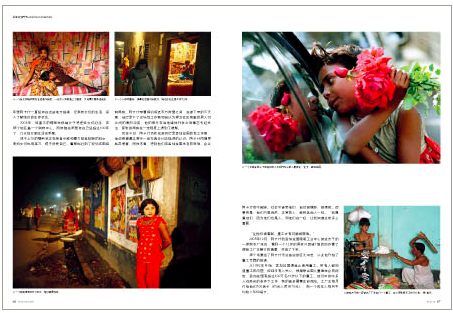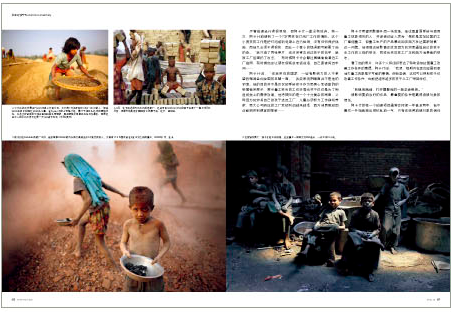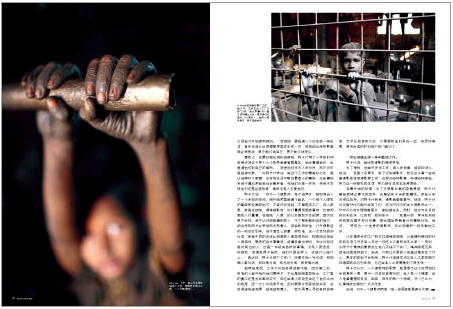GMB Akash wins UNICEF award

GMB Akash won Third Prize in the?UNICEF Photo of the Year Award for 2010 for his story?The Bitterest Pill.
Rapid Action Battalion, accused of hundreds of extra-judicial killings, received training from UK officers, cables reveal
By Fariha Karim and Ian Cobain guardian.co.uk, Tuesday 21 December 2010 21.30 GMT
The British government has been training a Bangladeshi paramilitary force condemned by human rights organisations as a “government death squad”, leaked US embassy cables have revealed.
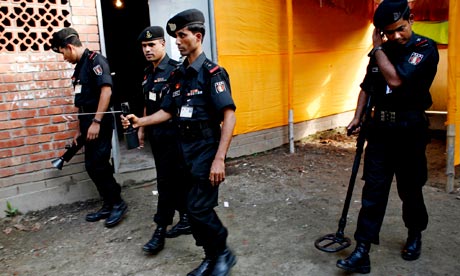
Members of the Rapid Action Battalion (RAB), which has been held responsible for hundreds of extra-judicial killings in recent years and is said to routinely use torture, have received British training in “investigative interviewing techniques” and “rules of engagement”. Details of the training were revealed in a number of cables, released by WikiLeaks, which address the counter-terrorism objectives of the US and UK governments in Bangladesh. One cable makes clear that the US would not offer any assistance other than human rights training to the RAB ? and that it would be illegal under US law to do so ? because its members commit gross human rights violations with impunity. Since the RAB was established six years ago, it is estimated by some human rights activists to have been responsible for more than 1,000 extra-judicial killings, described euphemistically as “crossfire” deaths. In September last year the director general of the RAB said his men had killed 577 people in “crossfire”. In March this year he updated the figure, saying they had killed 622 people. The RAB’s use of torture has also been exhaustively documented by human rights organisations. In addition, officers from the paramilitary force are alleged to have been involved in kidnap and extortion, and are frequently accused of taking large bribes in return for carrying out crossfire killings. However, the cables reveal that both the British and the Americans, in their determination to strengthen counter-terrorism operations in Bangladesh, are in favour of bolstering the force, arguing that the “RAB enjoys a great deal of respect and admiration from a population scarred by decreasing law and order over the last decade”. In one cable, the US ambassador to Dhaka, James Moriarty, expresses the view that the RAB is the “enforcement organisation best positioned to one day become a Bangladeshi version of the US Federal Bureau of Investigation”. In another cable, Moriarty quotes British officials as saying they have been “training RAB for 18 months in areas such as investigative interviewing techniques and rules of engagement”. Asked about the training assistance for the RAB, the Foreign Office said the UK government “provides a range of human rights assistance” in the country. However, the RAB’s head of training, Mejbah Uddin, told the Guardian that he was unaware of any human rights training since he was appointed last summer. The cables make clear that British training for RAB officers began three years ago under the last Labour government. However, RAB officials confirmed independently of the cables that they had taken part in a series of courses and workshops as recently as October, five months after the formation of the coalition government. Asked whether ministers had approved the training programme, the Foreign Office said only that William Hague, the foreign secretary, and other ministers, had been briefed on counter-terrorism spending. The US ambassador explains in the cables that the US government is “constrained by RAB’s alleged human rights violations, which have rendered the organisation ineligible to receive training or assistance” under laws which prohibit American funding or training for overseas military units which abuse human rights with impunity. Human rights organisations say the RAB cannot be reformed, noting that its human rights record has deterioriated still further in the last 12 months. Human Rights Watch has repeatedly described the RAB as a government death squad. Brad Adams, the organisation’s Asia director, said: “RAB is a Latin American-style death squad dressed up as an anti-crime force. The British government has let its desire for a functional counter-terrorism partner in Bangladesh blind it to the risks of working with RAB, and the legitimacy that it gives to RAB inside Bangladesh. Furthermore, it is not clear that the British government has ever made it a priority at the highest levels to tell RAB that if it doesn’t change, it will not co-operate with it.” Amnesty International has also repeatedly condemned the RAB, while the Bangladeshi human rights organisation Odhikar has painstakingly documented the RAB’s involvement in extra-judicial killings and torture since the creation of the force in March 2004. Asked to comment on the rights groups’ concern about the RAB, the Foreign Office said: “We do not discuss the detail of operational counter-terrorism cooperation. Counter-terrorism assistance is fully in line with our laws and values.” At least some of the British training has been conducted by serving British police officers, working under the auspices of the National Policing Improvement Agency (NPIA), which was established in 2007 to build policing capacity and standards. Recent courses for RAB have been provided by officers from West Mercia and Humberside Police. Asked whether it believed it was appropriate for British officers to be training members of an organisation condemned as “a government death squad”, and whether courses in investigative interviewing techniques might not render torture more effective, an NPIA spokesman said the courses had been approved by the government and by the Association of Chief Police Officers. “The NPIA has given limited support to the Bangladeshi Police and the RAB in technical areas of policing such as forensic awareness, management of crime scenes and recovery of evidence. Throughout the training we have emphasised the importance of respecting the human rights of witnesses, suspects and victims.”The purpose of our sanctioned engagement is to support the development and improvement of professional policing that supports democratic, human rights-based practices linked to the rule of law in countries that may have different laws, faiths and policing practices from our own.” It is understood that there have been disagreements within the Foreign Office about the British government’s involvement with the RAB. Some officials have argued that the partnership with the RAB is an essential component of the UK’s counter-terrorism strategy in the region, while others have expressed concern that the relationship could prove damaging to Britain’s reputation. Successive Bangladeshi governments have promised to end the RAB’s use of murder. The current government promised in its manifesto that it would end all extra-judicial killings, but they have continued following its election two years ago.In October last year, the shipping minister, Shahjahan Khan, speaking in a discussion organised by the BBC, said: “There are incidents of trials that are not possible under the laws of the land. The government will need to continue with extra-judicial killings, commonly called crossfire, until terrorist activities and extortion are uprooted.” In December last year the high court in Dhaka ruled that such killings must be brought to a halt following litigation by victims’ familes and human rights groups, but they continue on an almost weekly basis. Most of the victims are young men, some are alleged to be petty criminals or are said to be left-wing activists, and the killings invariably take place in the middle of the night. In the most recent “crossfire” killings, the RAB reported that it had shot dead Mohammad Mamun, 25, in the town of Tangail, shortly after midnight on Monday, and that 90 minutes later its officers in Dhaka, 50 miles to the south, had shot dead a second man, Taku Alam, 30. Today the RAB announced it had shot dead a 45-year-old man, Anisur Rahman, said to be a member of the Communist party in the west of the country. Fariha Karim is a student and Abir Abdullah, vice principal of Pathshala, The South Asian Media Academy
Probal Rashid Bags First Prize
Feature Section: OnAsia Photo Contest
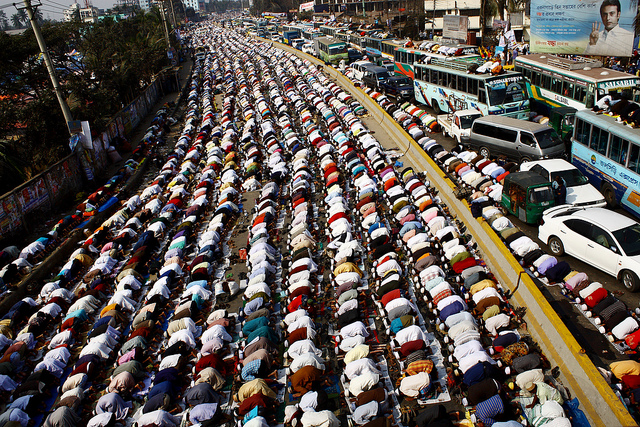
K M Asad receives Honourable Mention in “Viewbook PhotoStory”
Documentary section “Live with unexpected reality”
Presentation by Robert Pledge
President Contact Press Images
Pathshala
24th November 2010
7 pm – 8 pm Classroom # 1
Robert Pledge was born in 1942 in London, UK and moved to Paris, France at the age of ten. A student of West African languages and anthropology, he found his way into journalism as a specialist in African affairs. The president of Contact Press Images, which he founded with American photographer David Burnett in New York in 1976, he has edited many highly-acclaimed books and curated exhibitions throughout the world, in Amsterdam, Bamako, Beijing, Berlin, Brussels, Dhaka, Lausanne, London, Madrid, Mexico City, New Dehli, New York, Paris, and Tokyo. A major presence in the photographic community, he has conducted master classes in Bangladesh, China, India, Mali, Turkey, and Switzerland, and has sat on many juries, including the W. Eugene Smith Fund in the USA, the CNA Mosaique program in Luxembourg, and the World Press Photo Foundation in Amsterdam, The Netherlands, which he chaired in 2001. In 2004 he received the Overseas Press Club’s “Olivier Rebbot Award” for the book Red-Color News Soldier, which he authored with Li Zhensheng. He commutes between Paris and New York. Contact Press Images:Ten months after the last Americans in Vietnam were evacuated from a Saigon rooftop in April 1975, Robert Pledge and David Burnett launched Contact Press Images out of New York City. Pledge, a French-British journalist specializing in African affairs, and Burnett, an American who became the last photographer contracted by Life magazine before its dissolution in 1972 to cover the war in Southeast Asia, had been introduced by their common friend, filmmaker and photographer Raymond Depardon in New York in the summer of 1973 when all three were associated with the agency Gamma. For both Burnett and Pledge, the war in Vietnam was formative in shaping their view of the new generation?s journalistic mission, and over the next three decades and beyond Contact photographers would respond to its lessons in ways both explicit and subliminal: reaffirming the existence of inalienable human rights, the necessity to question authority, and a sense that history itself was the true battleground.
Rasel Chowdhury finalist in Magnum Expression Award 2010
Desperate Urbanisation
Tushikur Rahman wins jury award at conceptual category in View Book
Fatalistic Tendency
Pathshala Promo for Courses on Television Journalism
The Complete Evaluation Video
Two Films Made by the Participants
Abir Abdullah in Jury of World Press Photo?2011
An international jury of leading professionals in the field of photojournalism worldwide will be judging the entries at the World Press Photo office in Amsterdam from 29 January until 10 February 2011. The results will be announced at 11 AM (CET) on 11 February in a press conference at the Amsterdam City Hall and online at?www.worldpressphoto.org.
The prize-winning pictures will be presented in an exhibition that will travel to approximately 100 cities in 45 countries, starting in Amsterdam at the end of April. A yearbook published in six languages offers an inside in the winning pictures as well.
In the 2010 contest, 5,847 photographers from 128 countries participated submitting a total of 101,960 photographs.
The international jury of World Press Photo is seen as the UN of the global photojournalism community.
Abir Abdullah is a Bangladeshi photographer ?who works for the European Press Agency (EPA) and is vice principal of Pathshala, The South Asian Media Academy

